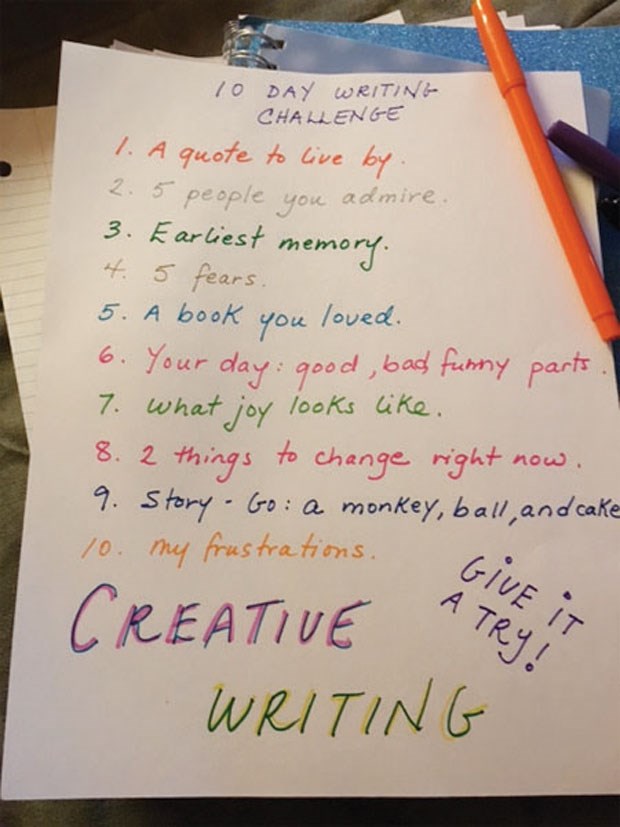"Your words are the bricks and mortar of the dreams you want to realize. Your words are the greatest power you have. The words you choose and their use establish the life you experience." - Sonia Choquette
Whether we are young or old, we all have a story to tell, something to express and to offer the world. Writing activities, and in particular reflective writing, fosters our creativity which is driven by our life experiences.
A growing body of research finds that writing about our responses to events, situations or new information can have a variety of health benefits.
Reviewing aspects of our lives (its setbacks and positive aspects) can help manage stress, anxiety and depression, improve mood, self-esteem and positive thinking, help process broken relationships, help ease symptoms associated with trauma, chronic pain and illness, and even strengthen our immune system.
Writer Ann Turkle says that, in effect, journaling "becomes a record of generous attention paid to the immediate moment." Setting aside time to write and reflect helps us make sense of the world around us, validates our experiences, helps us regroup and find balance in our busy lives, and be a vehicle for decision making, change and growth.
By writing, we have the opportunity to build a blueprint, a moral compass by which we live and how we treat others.
If journal writing helps us become better communicators, how do we get started?
1. Begin with a gracious heart: writing for ourselves is not about being the best writer, having the correct spelling and grammar, or even having the nicest handwriting. Letting go of what we think we should write about requires courage and can lead to boundless creative possibilities. A journal is a safe place for us to work things out, express our innermost feelings and engage with our own thoughts.
2. Set the tone: Carve out a special time and place to write. We each have a time of day when we are more productive. For some, writing in the mornings is more productive and helps face the day while others prefer writing in the evening to help process the day's events. Whether in a quiet area of the house, or in a bustling coffee shop, finding the right time and environment for reflective writing can help us relax. Carrying a small journal in our bag or purse can help us record and retrieve special moments in our day.
3. Decide what type of journal to begin: Gratitude journals focus on life's blessings, prayer journals record life moments or people in need prayer, and personal development journals track career goals. Fitness journals help maintain accountability and encouragement with healthier living choices, travel journals record experiences encountering new places and people, and art journals serve as a way to collect inspirational thoughts, images, sketches and clippings. Take your pick! 4. Use a variety of reflective prompts: a) Ask questions with a limit: Write about two moments you'll never forget, five words that best describe you and 10 things that make you smile. Limiting ourselves to certain parameters helps us focus.
b) Stream of consciousness writing: Based on Julia Cameron's The Artists Way, write down whatever comes to mind for three minutes. Putting un-edited thoughts to paper is an excellent meditative practice for our busy lives. c) Write a letter to yourself: Record your goals, what you want your life to look like in a year's time, and ways you can attempt to achieve it. Seal it and open it in six months to see how you are doing. d) Pick a memento: Choose an object and write about when, where and from who it was received. Discuss its importance and meaning. Objects have the power to open floodgates to meaningful memories.
5. Seek out community resources: Look for local writers' groups either at the library or community centre, local creative arts classes that have writing components, or even swap ideas with friends and family.
Remind yourself there is not a right or wrong way to write reflectively; it's a "space for questions that may not have answers, a place for thoughts that may otherwise not have a home and a safe container for emotions so that they do not have to be loose in the world." (Kelly Brown)
Why not give it a try. It could be good for you!



